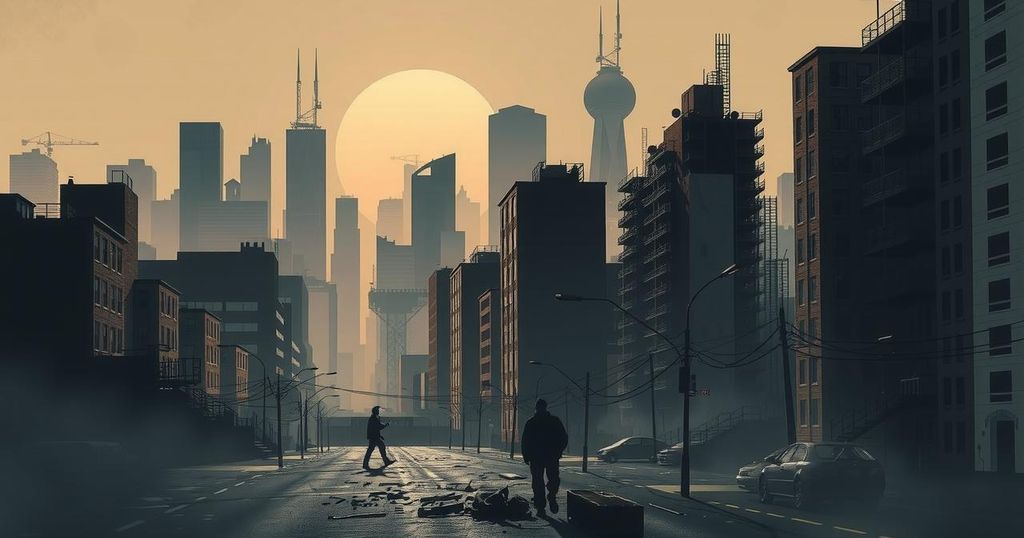The M23 rebel group has seized Goma in the DRC, escalating a long-term conflict and creating a humanitarian crisis. Aid workers report rampant casualties, overwhelmed hospitals, and resource shortages amid fears for civilian safety. The region’s turmoil highlights the vulnerability of women and children, prompting calls for political accountability and international support to mitigate the dire situation.
Gunfire erupted in Goma as the M23 rebel group captured this key city in the Democratic Republic of Congo (DRC), marking a notable escalation in a decade-long conflict. Amidst the chaos, Faith, a 42-year-old aid worker, described the dire humanitarian situation, with dead bodies strewn across the streets, overwhelmed hospitals, and children dying at alarming rates. “The humanitarian situation is critical,” he recounted, emphasizing that hospitals lack food, water, and medication.
The M23 coalition, which emerged from a decade-old conflict, accuses the DRC government of failing to implement a peace agreement that required the integration of Congolese Tutsis into military and civil service roles. Despite the government’s denials, there are reports of Rwanda providing support to the M23, whose rapid advancement in resource-rich eastern Congo likely enhances funding through illicit mineral trade.
While parts of Goma are quieter now, many residents remain indoors for safety. Faith noted, “Everything is paralysed,” and expressed concern about displaced individuals without support, now crowding the streets. President Félix Tshisekedi has called for a substantial military mobilization against the rebellion, indicating a refusal to negotiate with M23, even as the rebels claim they are open to talks, driven by aspirations for political control.
Corneille Nangaa, an M23 leader, stated their intent to seize power in the capital, Kinshasa, even though the distance presents a significant challenge. The DRC has a persistent humanitarian crisis, with millions displaced, particularly in North Kivu where Goma is situated. Bernard Balibuno, a representative for Cafod, shared his distressing observations after fleeing Goma, highlighting the chaos and resource shortages the populace is facing.
Balibuno relayed that individuals are emerging cautiously from hiding, fearing for their safety, yet they demonstrate support for soldiers by clapping, seeking to convey a message of non-hostility. Concerns about the vulnerability of women and children are pronounced, as many are facing grave threats. “The first victims will be women and children,” Balibuno cautioned, reflecting on the increased risk of gender-based violence amid the turmoil. He concluded with a call for urgent political accountability and international assistance, urging a collaborative diplomatic approach to mitigate the ongoing crisis.
The Democratic Republic of Congo has been embroiled in conflict for decades, particularly in its eastern regions, where rebel groups like M23 have emerged in response to local grievances regarding governance and representation. The presence of vast natural resources in these areas has further complicated the conflict, with illicit mineral trade financing many operations. Amid ongoing strife, humanitarian conditions have deteriorated, resulting in millions of internally displaced individuals suffering dire circumstances. The situation escalated significantly as M23 captured Goma, raising alarm over the safety of civilians and the potential for a broader conflict if not managed effectively.
The situation in Goma represents a critical humanitarian crisis exacerbated by ongoing conflict led by the M23 rebels. With significant numbers of civilians at risk, particularly women and children, the lack of resources and governance presents severe challenges. The leadership in DRC faces pressure both nationally and internationally to address the causes of the violence and provide adequate support for the populations affected. Calls for accountability and diplomatic interventions are essential to prevent further deterioration.
Original Source: www.independent.co.uk






